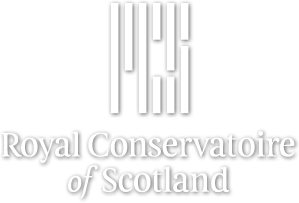The Royal Conservatoire of Scotland
The Royal Conservatoire of Scotland is bold, ambitious and optimistic about its future as a 21st century conservatoire. Their goal today is to raise the transformative power and reach of the performing arts in Scotland and beyond. RCS graduates will enrich the performing arts with new work and create the future of performance for generations to come. The Conservatoire experience is one of total immersion where the student can discover and develop his/her optimum potential.
The Royal Conservatoire of Scotland started as the Glasgow Athenaeum in 1847 and was formally opened by Charles Dickens, who delivered the inaugural address at the first ‘soiree’.
For the first 39 years, the Athenaeum only offered music classes. Then, in 1886, drama was introduced into the curriculum. It was from the Athenaeum’s School of Music that the Scottish National Academy of Music was formed in 1929. This grew in prestige and by 1944, its international standing was recognised by King George VI, who approved that the prefix ‘Royal’ be added to the Academy’s title, making it the ‘Royal Scottish Academy of Music’. In 2011 the institution became the Royal Conservatoire of Scotland.
The RCS is Scotland’s national centre of professional vocational training in performing arts, leading the way as one of Europe’s top conservatoires, offering a rare breadth of artistic disciplines.
Building on roots as a national academy of music, the RCS have grown over the past 170 years to be one of the most interdisciplinary and collaborative institutions in the world and are consistently ranked within the world’s top 10 performing arts institutions.
The institution now offers degrees across the whole range of performing arts, with collaboration across music, drama, dance, production and film.
More than 1000 lecturers, tutors, artists, technicians, co-ordinators and support staff work at the Royal Conservatoire of Scotland.
Students flourish thanks to the extraordinary blend of intensive tuition, a rigorous performance schedule, working with professional counterparts, and the space to create with others across the disciplines.
The RCS Jazz department has a symbiotic relationship with the Scottish National Jazz Orchestra as well as the Tommy Smith Youth Jazz Orchestra, and the tutors of the RCS department are amongst Scotland’s leading performers and creative artists in the field of improvisation and composition.
The Royal Conservatoire of Scotland offers a high level of training in improvised music aimed at cultivating development as a creative and versatile performer. The BMus programme explores this genre in the broadest possible terms and provides the opportunity to perform, compose and record in many different styles and settings.
The BMus in Jazz is a specialist pathway for a performance career in jazz. It is the first and the only full-time degree level jazz course in Scotland and offers many creative and artistic opportunities across a wide-ranging curriculum, with tuition from some of the finest jazz musicians and educators in the UK.
Through class teaching in dedicated jazz studios, students are trained in the essentials of chord scale harmony, improvisation, classic repertoire, composition, history, music business and arranging. Students are introduced to the full range of contexts from solo and ensemble work, to big band settings.
RCS is part of The European Jazz Workshop in order to provide an international platform for the Scottish students to thrive and develop. The Royal Conservatory of Scotland is a highly internationally orientated institution and looks to partnerships with other forward-thinking partners in order to develop the field of higher music education in general, and in the case of The European Jazz Workshop – jazz education in particular.


